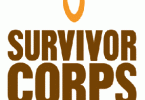Farewell
Let us start by saying ‘THANK YOU.’ For thirteen years, your support has enabled Survivor Corps to bring positive change to a hurting population. We’ve not only improved the lives of individual survivors on the ground, but we’ve also changed laws and practices worldwide that will govern the lives of war survivors for years to come.
This year, for a number of reasons, our Board of Directors decided the best way to preserve our legacy and increase impact was to close Survivor Corps as an international nonprofit and transfer all our programs, knowledge and resources to our local partners. This decentralized approach will prepare the next generation of survivor leaders to build on what Survivor Corps started many years ago.
Looking back over our work, we’ve compiled a few facts to boast of our accomplishments:
- We’ve helped over 12,000 survivors in 12 countries recover from their injuries and trauma, get jobs and give back to their communities.
- We’ve conducted over 135,000 survivor home and hospital visits, pioneering a peer support methodology with measurable results.
- We’ve negotiated three world-changing treaties for people with disabilities and the weapons used to kill and injure them.
- We’ve trained survivor advocates and leaders to carry on this work in over 40 war-affected countries.
Returning Troops
We helped many returning troops and service members that have served in military operations in Iraq and Afghanistan.We helped in successful reintegration of returning service members. Survivor Corps and its partners were determined to avoid the mistakes made when veterans returned from Vietnam, which resulted in tens of thousands of post-war suicides and over 200,000 men and women living on the streets.
Be assured that our signature peer support program for survivor recovery will continue and grow through the Center for International Stabilization and Recovery at James Madison University, under the direction of Survivor Corps co-founder Ken Rutherford. In the United States, our partners at the Statewide Advocacy for Veterans’ Empowerment in Massachusetts will serve as a model for how veteran-to-veteran peer support is critical to a healthy reintegration strategy for service members returning from the wars in Iraq and Afghanistan.
We were among the first to bring the ‘survivor voice’ to the negotiating table and to establish programs for survivors by survivors. It is important to all of us at Survivor Corps for this legacy to continue. The legacy of Survivor Corps will live on through multiple organizations, in Bosnia and Herzegovina through Landmine Survivors Initiatives, in El Salvador with our partner Fundacion Red de Sobreviventes y Personas con Discapacidad, in Vietnam with the Association for Empowerment of Persons with Disabilities, and our UK-based partner Action on Armed Violence. All of these local non-govermental organizations will take up this important work, ensuring survivor participation in existing negotiations of treaties and in the new arena of armed violence reduction. The survivor voice will also thrive through the 700 survivor-advocates we have trained worldwide to advocate for their rights. Our talented alumni are now housed in many organizations where survivor advocacy will continue to evolve. All of these groups will advance our mission by continue helping more and more survivors to build a better future.
We hope you’re as proud as we are, when looking at all we’ve accomplished together.
Jerry white
Please send all inquires to
trustee@survivorcorps.org
Survivor Corps
2100 M St NW STE 170-342
Washington, DC 20037-1233
